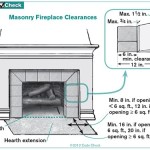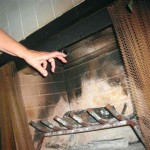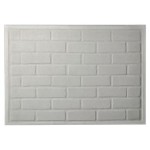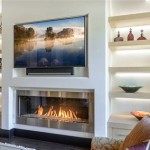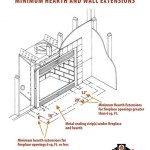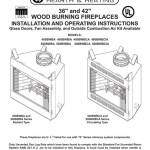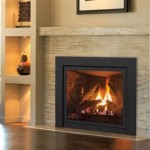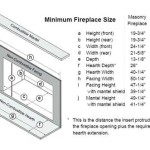Understanding the Crucial Role of a Gas Fireplace Thermocouple
A gas fireplace, with its warm glow and cozy ambiance, adds a unique charm to any home. But behind the enchanting flames lies a sophisticated system that requires precise control to ensure safe and efficient operation. A key component in this system is the thermocouple, a small, yet essential device that plays a crucial role in maintaining safety and preventing potential hazards.
What is a Thermocouple?
A thermocouple is a temperature-sensing device that is often used in gas appliances, including fireplaces. It consists of two dissimilar metal wires joined at one end, called the hot junction, and connected to a control valve at the other end. When exposed to heat, the hot junction generates a small electrical current, which is then used to keep the gas valve open, allowing for the uninterrupted flow of fuel.
Imagine a thermocouple as a vigilant guardian, constantly monitoring the flame. When the flame is present and stable, the thermocouple senses the heat and sends a signal to the gas valve, keeping it open. If the flame is extinguished, the thermocouple cools down, interrupting the electrical current and shutting off the gas supply, preventing the possibility of gas leaking into the home.
Key Functions of a Gas Fireplace Thermocouple
The thermocouple plays a critical role in ensuring safe and efficient operation of your gas fireplace by performing the following functions:
1. Flame Supervision and Safety:
The primary function of a thermocouple is to act as a safety device, safeguarding against potential hazards associated with gas leaks. When the flame is ignited, the thermocouple senses the heat and keeps the gas valve open. If the flame is extinguished, the thermocouple cools down, interrupting the electrical current and shutting off the gas supply. This prevents the accumulation of unburnt gas, which could lead to an explosion or fire.
2. Preventing Gas Leaks and Accidents:
A malfunctioning or faulty thermocouple can be a serious safety concern. If the thermocouple fails to detect a flame or fails to send a signal to the gas valve, gas could continue to flow even after the flame is extinguished. This could create a dangerous situation, leading to gas leaks and potential accidents. Therefore, it is crucial to ensure that your thermocouple is functioning properly and promptly address any issues or signs of malfunction.
3. Continuous Flame Monitoring:
In addition to shutting off the gas supply when the flame is extinguished, the thermocouple also plays a crucial role in maintaining a stable flame during operation. By continuously monitoring the flame temperature, it ensures that the gas flow is adjusted appropriately to maintain the desired flame intensity. This helps to ensure efficient gas consumption and prevents fluctuations in the flame, which could lead to performance issues or safety risks.
Thermocouple Types and Considerations
Thermocouples come in various types, each with its own specific characteristics and applications. Two common types used in gas fireplaces are:
1. Standard Thermocouples:
These are the most common type of thermocouples used in gas fireplaces. They are relatively inexpensive, readily available, and suitable for most residential applications. They typically use a combination of metals such as copper and constantan, which produce a relatively low voltage output. This output is sufficient to trigger the gas valve in most gas fireplaces, providing adequate safety and control.
2. Millivolt Thermocouples:
Millivolt thermocouples are designed to operate with a lower voltage output than standard thermocouples. They are often used in applications where power is limited or where the distance between the thermocouple and the gas valve is significant. These thermocouples typically use a combination of metals such as iron and constantan. While they provide slightly reduced sensitivity compared to standard thermocouples, they are still effective in providing reliable flame monitoring and safety.
When choosing a thermocouple for your gas fireplace, it's essential to consider the specific requirements of your appliance. Consult the manufacturer's instructions or a qualified gas appliance technician to determine the appropriate type of thermocouple for your needs. Additionally, regular inspection and maintenance of the thermocouple are crucial to ensure its proper functionality and safety.

Gas Fireplace Won T Stay Lit Magic Touch Mechanical

Thermo Thermopiles Friendly Fires

How A Pilot Light Works Www Mygasfireplacerepair Com

Pse Pilot Assembly With Eco Thermocouple Natural Gas Fire Parts Com

Knowledgebase Ventless Gas Logs Fireplaces Inserts Stoves And Accessories By Com Specializing In

Gas Fireplace Won T Stay Lit Magic Touch Mechanical

Heatilator Gas Stove Fireplace Thermocouple 446 511

Gas Fireplace Thermocouple Replacement Parts Thermopile Practical High Quality

Universal Thermocouple Assembly Gas Fireplace China Gasfornuis Made In Com

Gas Fireplace Missing Thermopile

